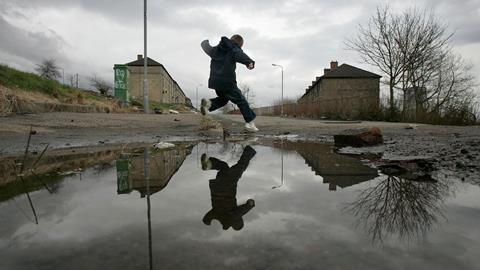Chemistry outreach does much more than intrigue students
Why do you believe that you can achieve things? What made you think getting a degree was within your grasp, or that you could be a good teacher? It was your sense of self-efficacy.
Self-efficacy is the belief that you can achieve things. That belief is crucial to a person realising their aspirations. Your sense of self-efficacy is what allowed you to follow the path to where you are today.
I work in the chemistry department at the University of Warwick where I run a schools outreach programme. My work is divided equally between primary and secondary school children. I spend a lot of time working in less affluent areas and I make school visits around three times per week. I give a lot of practical demonstrations and I also organise days when school groups can visit our laboratories to work on experiments with university students.
I think chemistry outreach work with young people provides exactly the necessary experiences to build a sense of self-efficacy. One of the main goals of chemistry outreach is to inspire the next generation of chemists. But we should realise that it can fill an even more important role – to raise the aspirations of students from all backgrounds, particularly the most disadvantaged.
Breaking backgrounds
My childhood experiences and the preconceptions about the world that I carry with me from my formative years are very different to most of the children I talk to every week. Most of the young people I meet live in poor urban areas and are from many different ethnic backgrounds. I’m told many have very difficult personal circumstances. They face a pressure from exams and assessment that I never knew. I’ve worked with children in foster care, children in special needs schools and children who are immigrants to the UK.
Despite their tougher backgrounds, many of the young people I work with are articulate, thoughtful, dextrous and quick to learn – every bit as bright as our undergraduate students. But I find that often they do not believe they could study for a chemistry degree, or go to university at all. ‘People like me don’t come to places like this,’ was how one really clever sixth form student put it to me as she worked in our laboratory.
Building self-efficacy
Albert Bandura is an American psychologist who formulated a theory about the factors that affect a person’s belief in their own ability to achieve. In his words: ‘Self-efficacy refers to beliefs in one’s capabilities to organise and execute the courses of action required to produce given attainments.’
Self-efficacy is not the same as self-esteem. ‘Self-efficacy is concerned with judgements of personal capability, whereas self-esteem is concerned with judgements of self-worth’.
Bandura cites four sources of self-efficacy and ranks them in order of importance.
The most important source of self-efficacy is ‘mastery experiences’. These are the opportunities to try something challenging, to struggle and fail, to build determination and to find that with determination comes success. These experiences could be learning to play the guitar, sail a boat, abseil down a cliff or prepare, purify and analyse paracetamol in a university chemistry laboratory. Mastery experiences serve as ‘indicators of capability’ – to succeed in one task builds confidence that you can succeed in others.
Crucially, the sense of self-efficacy gained from one activity transfers to other areas of life. Succeeding at a chemistry experiment doesn’t mean the student will only think they can do chemistry, it builds a general sense of self-efficacy in the person that they can carry with them through life.
I think this can at least partly explain why the least socially advantaged children seem to doubt their ability in such a frustrating way. These children may have had fewer opportunities to experience mastery. Music lessons, sport coaching and extracurricular activities can be expensive.
After mastery experiences come ‘vicarious experiences’ – achievements experienced vicariously through role models. ‘Someone like you’ who has achieved something impressive. Hopefully, in this the role model can also show the importance of hard work and determination.
In the context of chemistry outreach, the university students and staff the school students interact with can provide perfect examples of role models for the students.
Teachers and tutors provide Bandura’s third factor: ‘verbal persuasion that one possesses certain capabilities’. The encouragement and advice we can offer as adults to the school students is important, but ranks third here.
Lastly, psychological factors can influence how people judge their capability. If a child is suffering from depression, for example, then the power of a positive mastery experience may be diminished. Also, low self-efficacy can change how feelings of apprehension are interpreted.
For example, perhaps you have been asked to give a lecture to a large distinguished audience. It would be normal to feel some level of apprehension beforehand. If you have a strong sense of self-efficacy, you will accept your nerves are a natural response to this situation and you might accept this will even help you to give of your best. A person who does not have a strong sense of self efficacy might believe they feel nervous because they are not good enough to rise to the challenge.
Not just about chemistry
Many young people doubt themselves. With a greater sense of self-efficacy they might aspire to make the most of their abilities and to contribute to society in meaningful ways that are aligned to their talents.
Chemistry outreach is rightly done to promote the subject – to inspire the next generation of chemists. However, outreach work can also do something much more important. It can provide a chance for some of the most disadvantaged children in our society to raise their aspirations. Chemistry outreach is not just good for chemistry – it is good for children and for creating mastery experiences that build a sense of self-efficacy for the brilliant young people to be found in our poorest communities.










No comments yet